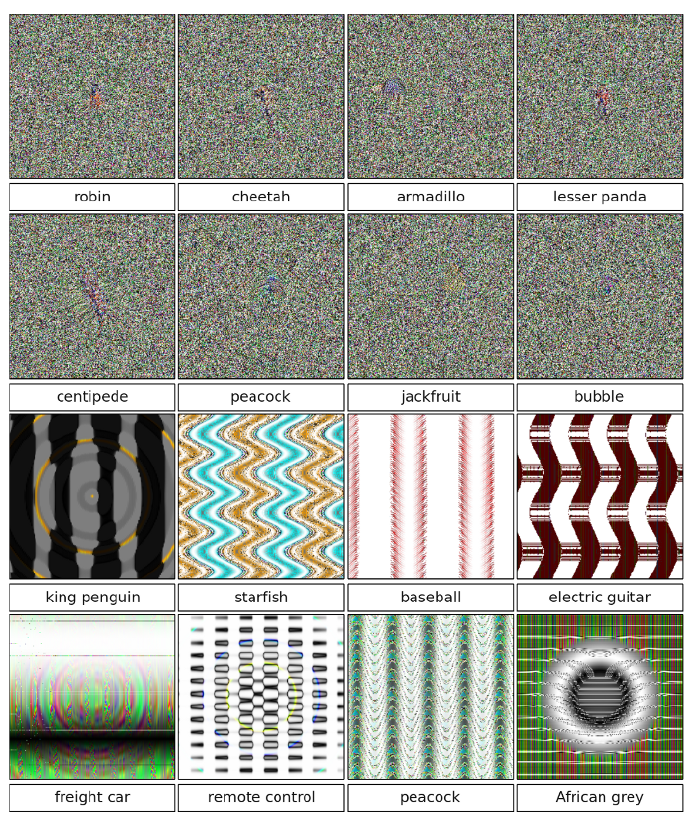FoolImages:DNN视觉和人眼视觉的差异
Deep Neural Networks are Easily Fooled: High Confidence Predictions for Unrecognizable Images (CVPR 2015)
Abstract
- It is easy to produce images that are completely unrecognizable to humans, but that DNNs believe to be recognizable objects with 99.99% confidence
Introduction
- we use evolutionary algorithms or gradient ascent to generate images that are given high prediction scores by CNNs.
- We also find that, for MNIST DNNs, it is not easy to prevent the DNNs from being fooled by retraining them with fooling images labeled as such.

Method
- DNN models
- DNN net: AlexNet,
- datasets: ImageNet, MNIST
- Generating images with evolution
- a new evolutionary algorithm called the multi-dimensional archive of phenotypic elites MAP-Elites, which performs well on many classes.
- two encodings: direct, and indirect (CPPN)
- CPPN networks start with no hidden nodes, and nodes are added over time, encouraging evolution to first search for simple, regular images before adding complexity